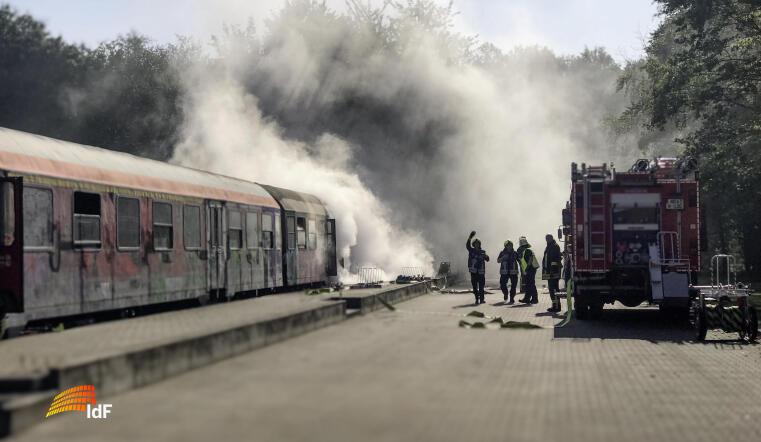Psychology and Firefighter Know-How for Better Training
The aim of the FIRE project (Feedback Instruments for Rescue Service Education) is to ensure the quality and continuous development of leadership training for the fire department and other aid organizations. Employees of the Department of Organizational and Business Psychology at the University of Münster (OWMs) are working together with experts from the State Fire Institute of North Rhine-Westphalia (IdF NRW) to develop and improve evaluation instruments for Leadership training. In addition, research on teamwork and leadership in high-risk contexts is being conducted within this framework. The results of the research are to be made available to a broad public through publications in international journals, open access databases and practical journals from the fire department sector.

Evaluation to Identify Potential for Improvement
At the IdF NRW, prospective and experienced leaders are prepared for their future activities in one-day seminars and events lasting several days or weeks. Extensive specialized knowledge as well as operational tactics are theoretically obtained and practiced in simulation games and realistic operational exercises. For this purpose, various operational situations are simulated at great expense.
A systematic evaluation can answer the following questions, among others: How satisfied are the participants with their training? To what extent are the learned contents internalized? How well will the training contents be put into practice in the long run? Together with the experts of the IdF NRW, the results are used to consider where the training can be adapted if necessary and how the transfer of the contents into practice can be made as smooth as possible.
Research to Understand the Human Factor
Being a firefighter is a challenging job - especially considering that many firefighters do their job on a voluntary basis and pursue another profession full-time. In emergency situations, managers have to provide orientation even though they are under particular pressure. In addition to the assignment, they are also called upon to reprocess difficult operations or moderate conflicts, for example. At this point, psychological research helps to better understand the human factor. Conclusions for training can be drawn from this.


